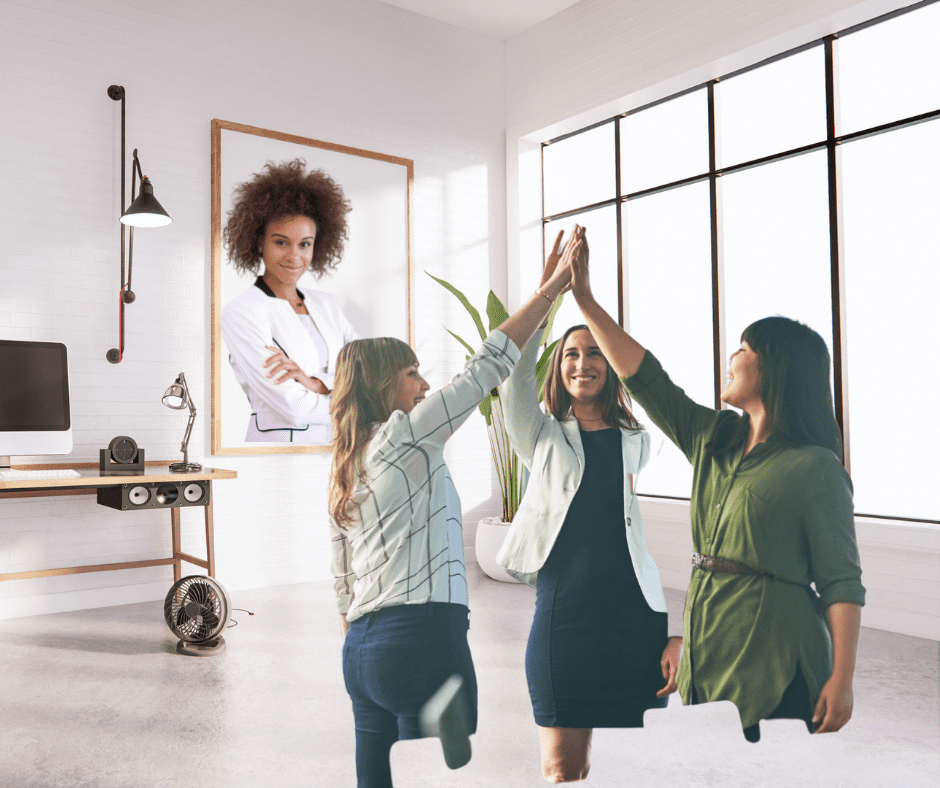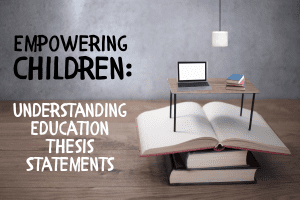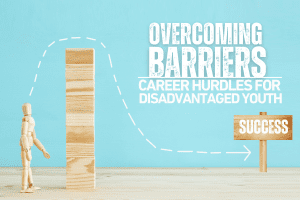The importance of empowering women 2
Why empowering women is crucial
Article by Tanisha Cantrell – interviews commissioned by Sovereign House GH
Women’s empowerment is the process of empowering women and allowing women to make life-determining decisions. It can also be as simple as accepting women’s viewpoints and so listening is crucial for understanding. Every woman and every individual have their journey and their own everyday issues that affect their lives.
But what does empowerment mean to women, and do women feel empowered today, in the UK?
People are empowered if they have access to opportunities without any limitations or restrictions, such as in education, profession, and in their way of life. Feeling entitled to make your own decisions creates a sense of empowerment.
Elyse Merriman who is a software engineer and a volunteer teacher at Sovereign House GH says:
“Being empowered to me means having the right support and it allows you to self-actualise your goals and your vision”.
“You don’t want to necessarily have someone do stuff for you or to give you the answer, but we all need to help each other so it is a matter of being given the right tools, the right environment, and the right attitude that I can then go and do stuff for myself.”
Elyse is originally from Canada but has lived in the UK for around 10 years, she believes that in her lifetime, a lot has been done to help women such as maternity policy and access to education.
Through volunteering at Sovereign House GH, Elyse is supporting people who may not yet feel empowered or know what it means to be empowered. She is advancing those who need it from a young age through the Computer Learning Programme project that Sovereign House GH runs.
She says: “If I am an empowered teacher, I can empower my students to learn, and I try to pass on that philosophy.”
Xuzel, who is from Peru also works at Sovereign House GH as part of their ICT Development and communications team and currently lives in the UK.
She says: “Empowerment means freedom, not in the way of saying ‘I can do whatever I want without caring about other people’ – but in the way that a girl has the chance to receive a good education that allows her to make better decisions in life and question the information she receives from society.”
With this in mind, it brings Elyse question of whether she feels empowered in the UK. She understands how in some ways she is empowered but also how other women may not feel the same.
She says: “I feel empowered as a woman because I have a job which is considered to be traditionally a male-dominated industry, but at the same time I know that there are a lot of women out there that did not have the same access.
For me, it is important to always try and be aware of how lucky I am and to try and pay it forward, and to work with people to try and build a better system so people have access to those resources.
“I have second guessed myself in the past and thought, are people treating me a certain way because I’m a woman, and if I was a man, would I be treated differently. It’s always hard to tell because most men aren’t put in that situation.”
In contrast, Xuzel is thankful for not being treated differently because of her gender, and during her studies and work she has not faced any discrimination.
However, she understands that if she was living back in Peru, this wouldn’t be the case.
Xuzel says: “Women feel free to pursue their dreams in the UK, and they feel strong enough to face different challenges in life with or without a partner. Comparing this with my context in Peru, where I’m from, I perceive that women feel more validated when there is a man by their side or when they have accomplished all the expected checks that a woman needs to do by a certain age.
“In the UK, the majority of women I have met are economically independent, while in Peru this is not the case. Sadly, many women depend economically on their husbands and that sometimes leads to some kind of abuse from their partners.”
In the culture in Peru, especially in the more rural areas, men are seen as superior to women. Under these cultural standards, men are expected to be masculine, self-reliant and dominant.
Meanwhile ,women are expected to be feminine and the main providers of care.
According to Global Teer, in ‘El acceso a la justicia de la mujer rural’, a 2016 study, men suggested that poor temperament of women, poverty and alcohol are additional reasons for abuse against women in Peru.
Peru is attempting to shift away from this culture in recent years, however movement toward a more equal society is focused more on the larger cities.
Xuzel says: “In Peru, we have inspirational women as well that are paving the way for more girls to feel empowered, but we are still in the initial phases.”
In the UK, there has been a huge improvement towards women’s having more equal participation in the formal economy, which is empowering women and contributes to economic growth.
As a developed country, the UK has achieved almost universal primary and secondary education for girls and boys.
Nevertheless, there is sharp gender segregation when it comes to the subjects chosen by girls and boys, with little progress on encouraging more girls into better-paid career paths.
Elyse says: “I would really love to see more done to recognise people’s different financial situations and try and get people into jobs that pay better, because there seems to be a stigma that if you are poor, it is your fault.
“But it is not necessarily someone’s fault.
“In terms of education, it’s like a postcode lottery and it needs to be fairer and more balanced, and I say that as someone who didn’t attend school in the UK. From the kids that I teach and see, I want them to have the same opportunities that I did.
“I feel in Canada there is more balance regarding class structure. I got a good quality education and I was able to apply for loans for my education and I never felt worried about paying it back. I think a lot of people here in the UK have an overwhelming sense of dread that stops them from applying to university in some cases.
“From a young age, my parents fostered this sense of higher education, as well as my teachers. But some of the kids I teach here, who are 13-years- old, haven’t thought about their futures. From a young age, this was discussed with me, and I was told what my options were.”
The positive impacts of educating women and girls, and enforcing this empowerment is far-reaching.
An educated and empowered woman creates opportunities and the chance to secure what they want, and what they need to succeed in life.
Through women’s empowerment, we will achieve gender equality, and this needs to begin from an early age at a grassroots level.
Anne-Marie Marshall, 48, a services manager at Salford Community and Voluntary Services, feels empowered as a woman in the UK, but also believes there isn’t a straightforward answer for everyone because of structural inequalities.
She says: “As an individual, I do feel empowered but you have to factor in cultural norms and unconscious biases. On paper I feel empowered, I can make decisions about my own life.
“But you have to understand that there are issues around how we are brought up, gender norms, and what we’re taught in school. I have been through 80’s education where if you were a boy, you would do engineering and if you were a girl, you would be taught how to type.”
Anne-Marie took a deliberate choice when she was younger to not follow the path she was paved.
She says: “I took the choice not to do typing at the age of thirteen because I didn’t want to be defined by my gender. I was very conscious even back then about gender inequalities.”
Anne-Marie has challenged inequalities from a young age but believes everyone needs to continue to challenge them so we can see a change for women in the future.
However, she also believes there needs to be a huge shift and a societal change to transform the way the world works, and how it works in favour of people.
She says: “A person from a working-class background has a number of different obstacles to overcome so you can get to the same level as someone who has had a more privileged background.
“You add gender to the equation and that skews it again.
“Sometimes your future is even dictated before you’re born. Depending on where you are born into, and the circumstances you are brought into can dictate your life.
“You are not operating from the level playing field that you want everyone to be on.”
Many of the barriers to women’s empowerment are the result of cultural norms and the shared behaviours of people within society.
Elyse says: “We need people who are more open to change and more open to female empowerment to join us and stand up and speak up but I do know from experience that it isn’t always an easy thing.
“We need to challenge people when you can, and when it is safe to do so, on their attitudes. We also need to find opportunities to support women, and also create those opportunities.”
Xuzel believes to increase empowerment for women in the UK, men need to be a part of the conversations. She says: “I have the perception that some movements that aim to empower women are also attacking men in the same way.
“I think this kind of approach just brings more polarisation in the society and increases the gap between men and women even more instead of reducing it.”
Elyse, Anne-Marie and Xuzel offer their advice for women, and what they think are important steps in feeling empowered.
Anne-Marie says: “One of the things that need to be taught and explored is your core values because that will really show you what is important to you and show you the way for your life.”
Elyse adds: “Learning to communicate and advocate for yourself, being true to yourself and knowing it is OK to make mistakes is key, nobody is perfect and it is more important to say something than to stay silent.
“Empathy is always important, and it is essential to see where someone is coming from even if you don’t agree with them, because at the end of the day, we are all people and we all have different experiences.
“We are all people, and we all have feelings.” Xuzel adds: “Stay focused on your education. The more you learn, the more you are able to question things. I think education is a door that can open so many job opportunities in the future that can allow women to be economically independent.
“Also keep improving yourself, not only in your education but in your mental health, your inner peace.
“Lastly surround yourself with people who bring out the best of you. These are the people who will be challenging you to keep getting better and better.”
Feeling empowered as a woman isn’t a simple path and having the confidence within yourself to take control of your life isn’t easy. While often women are negatively impacted by the world and society around them, it is important to understand that women have every right to feel empowered.
Empowering women is a major movement and is a crucial key to achieving a more peaceful and prosperous world.




